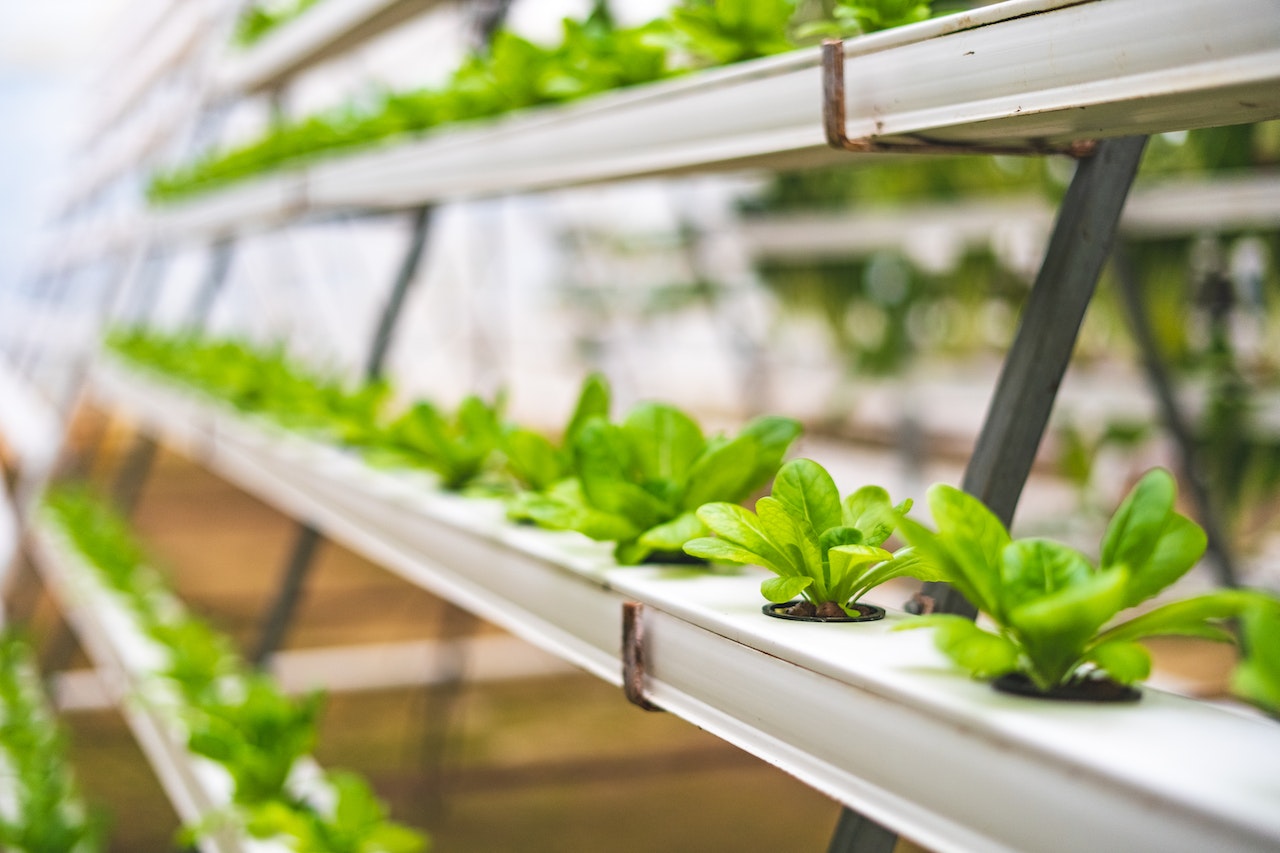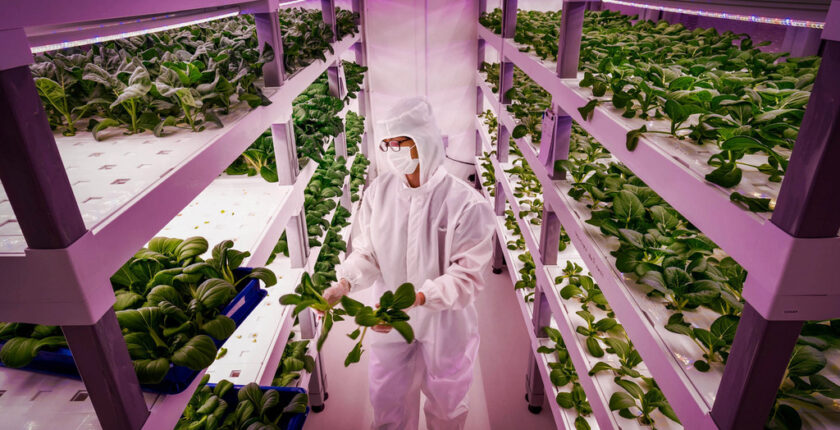Vertical Farming: From Engineers to Agricultural Scientists – The Wide Range of Career Opportunities
Are you looking for a career in a rapidly growing industry that has the potential to revolutionize the way we produce food? The vertical farming industry may be the perfect fit for you! In this article, we will explore the wide range of job opportunities that are being created within the vertical farming industry, from agricultural scientists and horticulturists to engineers and business professionals.

Vertical Farming Industry is expanding
As the vertical farming industry continues to grow and expand, it will create a range of new job opportunities for people with a variety of skills and expertise. Some of the specific job positions that are likely to be created within this industry include:
- Agricultural scientists and horticulturists: These professionals will be responsible for researching and developing new methods and techniques for growing crops in vertical farming systems. They will work to optimize the growth and yield of different plant species, and they will also be responsible for monitoring the health and growth of the plants.
- Engineers: Engineers will be responsible for designing and maintaining the complex systems and equipment used in vertical farming facilities. This may include developing new technologies and systems for providing plants with the necessary nutrients, water, and light, as well as designing and constructing the physical structures in which the plants are grown.
- Technicians and operators: These professionals will be responsible for the day-to-day maintenance and operation of vertical farming facilities. This may include tasks such as watering and fertilizing the plants, monitoring the health and growth of the plants, and troubleshooting any issues that may arise.
- Business professionals: The vertical farming industry will also require business professionals to manage the financial and operational aspects of these facilities. This may include tasks such as developing and implementing marketing strategies, managing budgets, and ensuring that the facility is operating efficiently and effectively.
- Sales and marketing professionals: As the vertical farming industry grows, there will be a need for sales and marketing professionals to promote the products and services offered by these facilities. This may include tasks such as developing marketing materials, building relationships with customers and partners, and identifying new opportunities for growth.
Overall, the vertical farming industry is expected to create a wide range of new job opportunities for people with a variety of skills and expertise. Whether you are interested in research and development, engineering, business, or any of the other positions mentioned above, there are likely to be exciting career opportunities within this rapidly growing sector.
Sustainable Jobs in Vertical Farming
Sustainable jobs are those that have a positive impact on the environment and contribute to the long-term well-being of society. The vertical farming industry is closely related to sustainable jobs because it offers a more sustainable and efficient way to produce food.
In traditional agriculture, crops are grown in large, open fields that require significant amounts of water, pesticides, and fertilizers. These practices can have negative impacts on the environment, including soil erosion, water pollution, and the destruction of natural habitats.
In contrast, vertical farming systems use significantly less water and fewer pesticides and fertilizers, as they are able to recycle and reuse the nutrients and water that are used to grow the crops. This makes vertical farming a much more sustainable and environmentally friendly way to produce food.
Additionally, because vertical farming systems can be located in urban areas, they can reduce the need for transportation and storage of food, further reducing the environmental impact of food production.
Overall, the vertical farming industry offers a range of sustainable job opportunities for people who are interested in working in a field that has a positive impact on the environment. Whether you are interested in research and development, engineering, business, or any of the other positions mentioned above, there are likely to be exciting and sustainable career opportunities within this rapidly growing sector.
Sales and Marketing Professionals
Sales and marketing professionals play a critical role in the success of vertical farming companies. They are responsible for promoting the products and services offered by these companies and helping to build relationships with customers and partners.
Some of the specific tasks that sales and marketing professionals working in the vertical farming industry may be responsible for include:
- Developing marketing materials: This may include creating brochures, flyers, and other promotional materials to showcase the products and services offered by the company.
- Identifying new opportunities for growth: Sales and marketing professionals may be responsible for identifying new markets and opportunities for the company to expand its operations. This may involve researching potential customers and partners and identifying opportunities to sell the company’s products and services.
- Building relationships with customers and partners: Sales and marketing professionals will be responsible for building relationships with customers and partners to promote the company’s products and services. This may involve attending industry events, networking with potential customers and partners, and maintaining regular communication with existing customers.
- Developing and implementing marketing strategies: Sales and marketing professionals will work with the company’s leadership to develop and implement marketing strategies that are designed to promote the company’s products and services and drive sales.
One of the major challenges facing sales and marketing professionals in the vertical farming industry is the need to educate potential customers about the benefits of vertical farming. Many people may not be familiar with this innovative approach to agriculture, and it may be necessary to explain the advantages of vertical farming over traditional agriculture in order to convince potential customers to try the company’s products.

Business Professionals
Business professionals play a vital role in the success of vertical farming companies. They are responsible for managing the financial and operational aspects of these companies and ensuring that they are running efficiently and effectively.
Some of the specific tasks that business professionals working in the vertical farming industry may be responsible for include:
- Developing and implementing business strategies: Business professionals will work with the company’s leadership to develop and implement business strategies that are designed to achieve the company’s goals and objectives. This may involve identifying new opportunities for growth, developing marketing plans, and establishing partnerships with other companies.
- Managing budgets: Business professionals will be responsible for managing the company’s budget and ensuring that resources are allocated efficiently. This may involve developing and monitoring financial reports, analyzing data, and making recommendations for how the company can save money and increase profits.
- Ensuring compliance with regulations: Business professionals will need to ensure that the company is complying with all relevant regulations and laws, including those related to food safety, environmental protection, and labor laws.
- Managing relationships with suppliers and partners: Business professionals will be responsible for building and maintaining relationships with suppliers and partners in order to secure the best prices and terms for the company’s products and services.
One of the major challenges facing business professionals in the vertical farming industry is the need to adapt to a rapidly changing market. As the industry evolves, business professionals will need to be able to quickly adapt and respond to changing consumer demands and market conditions.
Summary
The future of the vertical farming industry is bright, and it is poised to revolutionize the way we produce food. As this innovative approach to agriculture continues to grow and expand, it will create a wide range of exciting new job opportunities for people with a variety of skills and expertise. From agricultural scientists and horticulturists to engineers and business professionals, the vertical farming industry has something to offer for anyone who is curious and passionate about the future of food production. With its sustainable and efficient methods for growing crops, the vertical farming industry is sure to make a significant impact on the way we feed the world in the coming years. Whether you are just starting your career or looking to make a change, the vertical farming industry is worth exploring as it offers a range of rewarding and fulfilling career opportunities.

